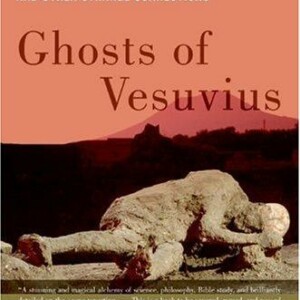Angelica’s Smile
$17.00
| Title | Range | Discount |
|---|---|---|
| Trade Discount | 5 + | 25% |
- Description
- Additional information
Description
“The novels of Andrea Camilleri breathe out the sense of place, the sense of humor, and the sense of despair that fills the air of Sicily.” —Donna Leon
A rash of burglaries has got Salvo Montalbano stumped. The patterns of the crimes are so similar and so brazen that Montalbano begins to think a criminal mastermind is challenging him. This suspicion is confirmed when he starts receiving menacing letters from the gang leader, the anonymous Mr. Z.
Among those burgled is the young and beautiful Angelica Cosulich, who reminds Montalbano of the love interest in Ludovico Ariosto’s chivalric romance, Orlando Furioso. Taken by Angelica’s charms, he imagines himself back in the medieval world of jousts and battles. But when one of the burglars turns up dead, Montalbano must snap out of his haze and unmask his challenger.Praise for Andrea Camilleri and the Montalbano Series
“Camilleri’s Inspector Montalbano mysteries might sell like hotcakes in Europe, but these world-weary crime stories were unknown here until the oversight was corrected (in Stephen Sartarelli’s salty translation) by the welcome publication of The Shape of Water…This savagely funny police procedural…prove[s] that sardonic laughter is a sound that translates ever so smoothly into English.”—The New York Times Book Review
“Hailing from the land of Umberto Eco and La Cosa Nostra, Montalbano can discuss a pointy-headed book like Western Attitudes Toward Death as unflinchingly as he can pore over crime-scene snuff photos. He throws together an extemporaneous lunch of shrimp with lemon and oil as gracefully as he dodges advances from attractive women.”—Los Angeles Times
“[Camilleri’s mysteries] offer quirky characters, crisp dialogue, bright storytelling—and Salvo Montalbano, one of the most engaging protagonists in detective fiction…Montalbano is a delightful creation, an honest man on Sicily’s mean streets.”—USA Today
“Camilleri is as crafty and charming a writer as his protagonist is an investigator.”—The Washington Post Book World
“Like Mike Hammer or Sam Spade, Montalbano is the kind of guy who can’t stay out of trouble…Still, deftly and lovingly translated by Stephen Sartarelli, Camilleri makes it abundantly clear that under the gruff, sardonic exterior our inspector has a heart of gold, and that any outburst, fumbles, or threats are made only in the name of pursuing truth.”—The Nation
“Camilleri can do a character’s whole backstory in half a paragraph.”—The New Yorker
“Subtle, sardonic, and molto simpatico: Montalbano is the Latin re-creation of Philip Marlowe, working in a place that manages to be both more and less civilized than chandler’ Los Angeles.”—Kirkus Reviews (starred)
“Wit and delicacy and the fast-cut timing of farce play across the surface…but what keeps it from frothing into mere intellectual charm is the persistent, often sexually bemused Montalbano, moving with ease along zigzags created for him, teasing out threads of discrepancy that unravel the whole.”—Houston Chronicle
“Sublime and darkly humorous…Camilleri balances his hero’s personal and professional challenges perfectly and leaves the reader eager for more.”—Publishers Weekly (starred review)
“The Montalbano mysteries offer cose dolci to the world-lit lover hankering for a whodunit.”—The Village Voice
“In Sicily, where people do things as they please, Inspector Salvo Montalbano is a bona fide folk hero.”—The New York Times Book Review
“The books are full of sharp, precise characterizations and with subplots that make Montalbano endearingly human…Like the antipasti that Montalbano contentedly consumes, the stories are light and easily consumed, leaving one eager for the next course.”—New York Journal of Books
“The reading of these little gems is fast and fun every step of the way.”—The New York Sun
“This series is distinguished by Camilleri’s remarkable feel for tragicomedy, expertly mixing light and dark in the course of producing novels that are both comforting and disturbing.”—Booklist Andrea Camilleri is the bestselling author of the popular Inspector Montalbano mystery series, as well as historical novels that take place in nineteenth-century Sicily. He lives in Rome.
Stephen Sartarelli (translator) is an award-winning translator and poet. He lives in France.
1. The arrival of the first anonymous letter makes Montalbano realize, “he hadn’t made many friends over the course of his life. . . . But deep down, weren’t Fazio, Mimi Augello, and even Catarella by now more friends than coworkers?” (p. 69) What do these musings reveal about Montalbano’s current state?
2. Inspector Montalbano falls for Angelica Cosulich, in part, because she looks exactly like an idealized woman he “pined for . . . at age sixteen” (p. 78). Have you ever reacted to someone based on his or her resemblance to someone else rather than who he or she was as a person?
3. Why do the passions of our youth hold such a lasting sway over us?
4. Camilleri opens the novel with Montalbano enraged with jealousy over something Livia said in her sleep. How does this incident affect your opinion of his later actions?
5. After hearing Livia talk about “Carlos,” Montalbano hears and sees the name all around him. Has this phenomenon ever happened to you? What do you think it means?
6. Does the fact that Angelica immediately tells Montalbano that she pays men for no-strings-attached sex make her a suspicious character? Would you judge Angelica’s sexual habits differently if she were a man?
7. Discuss Camilleri’s author’s note, in which he states, “Everything else was entirely invented by me and has no connection to reality. Assuming of course that one can exclude reality from a novel” (p. 287). How much reality do you like in your fiction?
8. (Spoiler Warning: Don’t read on if you don’t what to know whodunit!)
“The game cossitts o’ doin’ a most damage y’can do to the apposing couple, who’d be the avversary, bu’ also tryin’ a proteck y’r own partner from danger” (p. 226). Catarella’s seemingly irrelevant description of his computer game gives Montalbano a crucial insight onto this baffling case. Did it help you?
9. When Montalbano confesses his infidelity to Livia, she thinks he’s joking. If you’ve read previous books in the series, is his behavior in this novel characteristic of their relationship? Does Livia deserve better or are she and Montalbano well-suited to one another?
10. Were Angelica and her cousin Ettore Schisa justified in their pursuit of revenge? Is Antonino Pirrera’s death poetic justice?
11. Might they have gotten away with their plan if Schisa hadn’t taunted Montalbano with his anonymous letters?
12. Was Angelica shot because Montalbano failed to adequately protect her? Did he owe it to her to prevent her arrest, or did she deserve to pay for her role in the crimes?
1
He awoke with a start and sat up in bed, eyes already open. He was sure he’d heard someone talking in his bedroom. And since he was alone in the house, he became alarmed.
Then he started laughing, having remembered that Livia had shown up unannounced at his place that evening. The surprise visit had pleased him immensely, at least at first. And there she was now, sleeping soundly beside him.
A still-violet shaft of the dawn’s very earliest light shone through the window shutter. He let his eyelids droop without bothering to look at the clock, in hopes of getting a few more hours of sleep.
But then his eyes suddenly popped open again. Something had just occurred to him.
If someone had spoken in his bedroom, it could only have been Livia. She’d therefore been talking in her sleep. But this had never happened before. Or perhaps it wasn’t the first time. But if she had in fact talked in her sleep before, she’d done it so quietly that it hadn’t woken him up.
And it was possible she was, at that moment, still in the same dream state and might say a few more words.
So this was an opportunity not to be missed.
People who suddenly start talking in their sleep can’t help but say true things, the truths that they have inside them. He remembered reading that it was impossible to tell lies or stretch the truth in a dream state, because one is defenseless when asleep, as helpless and innocent as a baby.
It was very important not to miss anything of what Livia was saying. Important for two reasons. The first was general in nature, being that a man can live a hundred years at a woman’s side, sleep with her, have children with her, breathe the same air as her, and think he knows her as well as humanly possible, and still, in the end, feel as though he never really knows what she is like deep inside.
The other reason was more specific and immediate in nature.
He carefully got out of bed and went and looked outside through the slats of the shutter. It promised to be a lovely day, without clouds or wind.
Then he went over to Livia’s side of the bed, pulled up a chair, and sat down at the head, as in an all-night vigil at the hospital.
The previous evening—and this was the more specific reason—Livia had raised a big stink in a fit of jealousy, ruining the pleasure he had felt by her surprise visit.
Things had gone as follows.
The telephone had rung and she went to answer.
But as soon as she said hello, a woman’s voice at the other end had said:
“Oh, I’m sorry, I must have the wrong number.”
And she promptly hung up.
And so Livia got it in her head that the caller had been a woman he was having an affair with, that they’d arranged to meet that evening, and that when she’d heard Livia’s voice she’d hung up.
“I guess I rained on your parade, eh? . . . When the cat’s away, the mice will play! . . . Out of sight, out of mind! . . .”
There was no making her see reason, and things ended terribly that evening because Montalbano had reacted badly, disgusted not so much by Livia’s suspicions as by the endless barrage of clichés she kept firing at him.
So Montalbano was now hoping that Livia would say something stupid in her sleep, anything that might give him ammunition for a proper revenge.
He suddenly had a great desire to smoke a cigarette but restrained himself—first, because if Livia woke up and found him smoking in the bedroom, a revolution might break out, and second, because the smoke itself might wake her up.
About two hours later, he got a cramp in his left calf.
To make it go away, he started swinging his leg back and forth and, as a result, ended up dealing the wooden bed frame a violent kick with his bare foot.
It hurt like hell, but he managed to hold back the avalanche of curses that threatened to burst out of him.
The kick had an effect, however, because Livia sighed, moved a little, and then spoke.
Giving first a little laugh, in a full voice with no trace of hoarseness, she said distinctly:
“No, Carlo, not from behind.”
Montalbano nearly fell out of his chair. This was a bit too much of a good thing, for Chrissakes!
A couple of muttered words would have sufficed, just enough for him to build a castle of baseless accusations, Jesuit-like.
But Livia had uttered a whole sentence, loud and clear! Fuck!
As if she had been completely awake.
And it was a sentence that suggested just about everything, even the worst.
Meanwhile, she had never said a word to him about any Carlo. Why not?
If she’d never mentioned him, there must be a reason.
And then, what exactly was it she didn’t want Carlo to do to her from behind?
Did that mean: from in front, okay, but not from behind?
He broke into a cold sweat.
He was tempted to wake Livia up, shake her roughly and, glaring wild-eyed, ask her in an imperious, cop-like voice:
“Who is Carlo? Is he your lover?”
But she was a woman, after all.
And therefore likely to deny everything, even when groggy with sleep. No, that would be a wrong move.
It was best to summon the strength to wait a while and try to broach the subject at the right moment.
But when was the right moment?
Anyway, he would need to have a certain amount of time at his disposal, since it would be a mistake to bring the question up directly. Livia would immediately go on the defensive. No, he needed to take a roundabout approach, without arousing any suspicion.
He decided to go and take a shower.
Going back to bed was now out of the question.
He was drinking his first coffee of the morning when the telephone rang.
By now it was eight o’clock. He wasn’t in the mood to hear about any little murders. If anything, he might kill somebody himself instead, given half a chance.
Preferably someone by the name of Carlo.
He’d guessed right. It was Catarella.
“Ahh Chief, Chief! Wha’z ya doin’, sleepin’?”
“No, Cat, I was awake. What’s up?”
“Wha’ss up is ’ere’s a buggery tha’ss up.”
Montalbano hesitated. Then it dawned on him.
“A burglary, you mean? So why are you breaking my balls, eh?”
“Chief, beckin’ yer partin’, bu—”
“But nothing! No beckons or partings! Phone Inspector Augello at once!”
Catarella was about to start crying.
“’Ass jess what I wannit a say t’yiz, ya gotta ’scuse me, Chief. I wannit a say ’at Isspecter Augello was let go whereas of diss mornin’.”
Montalbano balked. You couldn’t even sack your housekeeper anymore these days!
“Let go? By whom?”
“Bu’, Chief, i’ ’s youse yisself ’at let ’im go yisterday aftanoon!”
Montalbano remembered.
“Cat, he took a leave of absence, he wasn’t let go!”
“Bu’ ya gotta let ’im go f’r’im to be assbent!”
“Listen, was Fazio let go too?”
“’Ass also what I wannit a tell yiz. Dis mornin’ ’ere’s some troubble atta market an’ so the afficer in quession izzatta scene o’ the crime.”
It was hopeless. He would have to look into it himself.
“All right, is the aggrieved party there?”
Catarella paused for a moment before speaking.
“’Ere meanin’ where, Chief?”
“There, at the station, where else?”
“Chief, how’s I asposta know ’oo this guy is?”
“Is he there or isn’t he?”
“’Oo?”
“The aggrieved party.”
Catarella remained silent.
“Hello?”
Catarella didn’t answer.
Montalbano thought the line had gone dead.
And he fell prey to that tremendous, cosmic, irrational fear that came over him whenever a phone call was cut off, as if he were the last person left alive in the universe.
He started shouting like a madman.
“Hello! Hello!”
“I’m right ’ere, Chief.”
“Why don’t you answer?”
“Chief, promiss ya won’ get upset if I tell yiz I dunno wha’ss a grieve party?”
Calm and patient, Montalbà, calm and patient.
“That’d be the guy who got robbed, Cat.”
“Oh, that guy! Bu’ iss no party f’r ’im, Chief!”
“What’s his name, Cat?”
“’Is name’s Piritone.”
Which in Sicilian means big fart. Was it possible?
“Are you sure that’s his name?”
“Sware to Gad, Chief. Carlo Piritone.”
Montalbano felt like screaming. Two Carlos the same morning was too much to bear.
“Is Signor Piritone at the station?”
“Nah, Chief, ’e jess called. ’E lives a’ Via Cavurro, nummer toitteen.”
“Ring him and tell him I’m on my way.”
Livia hadn’t been woken up by either the phone or his yelling.
In her sleep she had a faint smile on her lips.
Maybe she was still dreaming about Carlo. The bitch.
He felt overwhelmed by uncontrollable rage.
Grabbing a chair, he lifted it up and slammed it down on the floor.
Livia woke up suddenly, frightened.
“What was that?”
“Nothing, I’m sorry. I have to go out. I’ll be back for lunch. Ciao.”
He ran out to avoid starting a fight.
Via Cavour was in the part of Vigàta where the rich people lived.
It had been designed by an architect who deserved a life sentence at the very least. One house looked like a Spanish galleon from the days of pirates, while the one beside it was clearly inspired by the Pantheon in Rome . . .
Montalbano pulled up in front of number 13, which looked like the Pyramid of Menkaure, got out of the car, and went into the building. On the left was a little booth of wood and glass with the porter in it.
“Can you tell me what floor Mr. Piritone lives on?”
The porter, a tall, burly man of about fifty who clearly spent a lot of time at the gym, set down the newspaper he was reading, took off his glasses, stood up, opened the door of the booth, and came out.
“No need to bother,” said Montalbano, “all I need is—”
“All you need is for someone to bust your face,” said the porter, raising a clenched fist.
Montalbano cringed and took a step back.
What was this guy’s problem?
“Wait, listen, there must be some kind of misunderstanding. I’m looking for a Signor Piritone and I am—”
“You better make yourself scarce, and fast—I mean it.”
Montalbano lost patience.
“I’m Inspector Montalbano, goddammit!”
The man looked surprised.
“Really?”
“Would you like to see my ID?”
The porter turned red in the face.
“Christ, it’s true! Now I rec’nize ya! I’m sorry, I thought you were somebody tryin’ t’ fuck wit’ me. I apologize, sir. But look, there’s nobody here named Piritone.”
Naturally, Catarella, as usual, had given him the wrong name.
“Is there anyone with a similar name?”
“There’s a dottor Peritore.”
“That could be him. What floor?”
“Third.”
The porter walked him to the elevator, endlessly excusing himself and bowing.
It occurred to Montalbano that one of these days Catarella, by screwing up every name he gave him, was going to get him shot by someone who was a little on edge.
The slender, blond, well-dressed, bespectacled man of about forty who opened the door for the inspector was not as obnoxious as the inspector had hoped.
“Good morning, I’m Montalbano.”
“Please come in, Inspector, just follow me. I was forewarned of your visit. Naturally the apartment is a mess; my wife and I didn’t want to touch anything before you saw it.”
“You’re right, I should have a look around.”
Bedroom, dining room, guest room, living room, study, kitchen, and two bathrooms, all turned upside down.
Armoires and cabinets thrown open, contents scattered all over the floor, a bookcase completely emptied, books strewn everywhere, desks and consoles with all their drawers open.
Policemen and burglars had one thing in common when searching somebody’s home: even an earthquake left things in slightly better order.
In the kitchen was a young woman of about thirty, also blonde, pretty and polite.
“This is my wife, Caterina.”
“Would you like some coffee?” the woman asked.
“Sure, why not?” said the inspector.
After all, the kitchen was less topsy-turvy than any of the other rooms.
“Maybe it’s best if we talk in here,” said Montalbano, sitting down in a chair.
Peritore did the same.
“The front door didn’t look forced to me,” the inspector continued. “Did they come in through the windows?”
“No, they just used our keys,” said Peritore.
He stuck a hand in his pocket, took out a set of keys, and set them on the table.
“They left them in the entrance hall.”
“I’m sorry. So you weren’t home when the burglary occurred?”
“No. Last night we slept at our seaside house, at Punta Piccola.”
“Ah. And how did you get in if the burglars had your keys?”
“I always keep an extra set with the porter.”
“I’m sorry, I don’t quite understand. So where did the burglars get the keys they used to enter your apartment?”
“From our seaside house.”
“While you were asleep?”
“Exactly.”
“And they didn’t steal anything from that house?”
“They certainly did.”
“So in fact there were two robberies?”
“That’s right.”
“I beg your pardon, Inspector,” said Signora Caterina, pouring his coffee. “Maybe it’s better if I tell you. My husband is having trouble putting his thoughts in order. So. This morning we woke up around six, both of us with headaches. And we immediately realized that someone had broken in through the front door of our seaside home, knocked us out with some sort of gas, and had the run of the place.”
“You didn’t hear anything?”
“Nothing at all.”
“Strange. Because, you see, they had to break through your front door before they could gas you. You just said so yourself. And so, you should have heard . . .”
“Well, we were . . .”
The woman blushed.
“You were?”
“Let’s say we were a bit tipsy. We were celebrating our fifth wedding anniversary.”
“I see.”
“I don’t think we would even have heard a cannon shot.”
“Go on.”
“The burglars apparently found my husband’s wallet in his jacket, along with his ID card and our address—this one, I mean—as well as the keys to this place and to the car. So they quietly got into our car, came here, opened the door, stole what they wanted to steal, and went on their way.”
“What did they take?”
“Well, aside from the car, they didn’t take very much from the seaside house, relatively speaking. Our wedding rings, my husband’s Rolex, my diamond-studded watch, a rather expensive necklace of mine, two thousand euros in cash, both of our computers, cell phones, and our credit cards, which we immediately had canceled.”
Not very much? If you say so.
“And a seascape by Carrà,” the lady concluded, cool as a cucumber.
Montalbano gave a start.
“A seascape by Carrà? And you had it out there, just like that?”
“Well, we were hoping no one would know how much it was worth.”
Whereas those guys certainly did know how much it was worth.
“And what about here?”
“Here they made off with a lot more. For starters, my jewel box with everything inside.”
“Valuable stuff?”
“About a million and a half euros.”
“What else?”
“My husband’s four other Rolexes. He collects them.”
“And that’s it?”
“Fifty thousand euros in cash. And . . .”
“And?”
“A Guttuso, a Morandi, a Donghi, a Mafai, and a Pirandello that my husband’s father left to him in his will,” the woman said in a single breath.
In short, a whole gallery of art worth a fortune.
“One question,” said the inspector. “Who knew that you were going to your house at Punta Piccola to celebrate your wedding anniversary?”
Husband and wife looked at each other for a moment.
“Well, our friends did,” the woman replied.
“How many friends do you mean?”
“About fifteen.”
“Do you have a housekeeper?”
“Yes.”
“Did she know too?”
“No.”
“Are you insured against burglary?”
“No.”
“Listen,” said Montalbano, standing up. “You have to come to the station immediately and file an official report. I would like a detailed description of the jewelry, the Rolexes, and the paintings.”
“All right.”
“I would also like a complete list of those friends of yours who were informed of your movements, with their addresses and telephone numbers.”
The woman gave a little laugh.
“You don’t suspect them, I hope?”
Montalbano looked at her.
“Do you think they’ll be offended?”
“Absolutely.”
“Then don’t tell them anything. I’ll be the first. See you later, at the station.”
2
The moment he walked into the station he noticed that Catarella’s face looked pained and distressed.
“What’s going on?”
“Nuttin’, Chief.”
“You know you’re supposed to tell me everything! Out with it! What happened?”
Catarella blew up.
“Chief, iss not my fault if Isspector Augello ghess let go! Iss not my fault if Fazio goes tada market! ’Oo’s I asposta ax? ’Oo’s I got left? Jess youse, Chief! An’ ya treated me real bad!”
He was crying, and to keep Montalbano from seeing, he was turned three-quarters away as he spoke.
“I’m sorry, Cat, but this morning I was upset about something personal. You had nothing to do with it. I’m really sorry.”
The inspector had barely sat down at his desk when Fazio came in.
“Chief, sorry I wasn’t available this morning, but there was a big row at the market . . .”
“Apparently this is the morning for excuses. Never mind, just sit down and let me tell you about this burglary.”
When Montalbano had finished, Fazio nodded several times.
“Strange,” he said.
“Well, it was certainly a perfectly planned burglary. We’ve never seen anything so well planned in Vigàta.”
Fazio was now shaking his head.
“I wasn’t referring to the perfect planning, but to the perfect resemblance.”
“What do you mean?”
“Chief, just three days ago, there was another burglary exactly like this one, an exact duplicate.”
“Why wasn’t I informed of this?”
“Because you told us you didn’t want to be bothered with things like burglaries. Inspector Augello took care of it.”
“Tell me more.”
“Do you know a lawyer named Lojacono?”
“Emilio? A fat guy, about fifty, with a limp?”
“That’s him.”
“And so?”
“Every Saturday morning the guy’s wife goes to Ravanusa to visit her mother.”
“A fine example of daughterly devotion. What the fuck do I care if she visits her mother? What’s that got to do with anything?”
“A lot. Just hang on a minute. Do you know a lady named Dr. Vaccaro?”
“The pharmacist?”
“That’s right. Her husband also goes to see his mother every Saturday morning, in Favara.”
Montalbano was starting to feel his nerves fraying.
“Would you please get to the point?”
“I’m getting to that. So anyway, both Lojacono the lawyer and Dr. Vaccaro the pharmacist take advantage of the absence of their respective spouses and every Saturday spend a blissful night in Lojacono’s country house.”
“How long have they been lovers?”
“For a little over a year.”
“And who knows about it?”
“Everyone in town.”
“We’re off to a good start. So how’d it go?”
“The lawyer’s a man known for being precise; he always does the same things, never varies. For instance, when he goes to his country house with his mistress, he always leaves the keys on top of the television, which is only about three feet away from a window that is always left half open, night and day, winter and summer. Got that?”
“Got it.”
“The burglars stuck a wooden pole about ten feet long with a magnetic metal tip through the grate and through the window, attracted the keys with the magnet, and then grabbed them.”
“How did you find out about the pole?”
“We found it at the scene.”
“Go on.”
“Then they opened the gate and front door with the keys and, without making any noise, went into the bedroom and gassed the lawyer and the lady pharmacist. They grabbed all the valuables they could find, then got into both cars, since the lady had come with her own, and drove here to Vigàta to ransack both of their homes.”
“So there were at least three burglars.”
“Why do you say that?”
“Because there had to have been a third man, the one driving the burglars’ own car.”
“True.”
“Can you explain to me why none of the local TV stations ever mentioned this story?”
“Because we did a great job. We wanted to avoid a scandal.”
At that moment Catarella showed up.
“Beckin’ yer partin’, Chief, but Misser an’ Missis Piritone juss come onna premisses juss now.”
Montalbano gave Catarella a dirty look but decided not to say anything. The guy might start crying again.
“Is that really their name?” Fazio asked in disbelief.
“Gimme a break! Their name’s Peritore. Listen, take them into your office, get their report and the list they’ve drawn up, and then come back here.”
After spending the next half hour signing papers, which were piling up on his desk out of control, the telephone rang.
“Chief, ’at’d be yer lady frenn.”
“Is she here?”
“Nossir, she’s onna line.”
“Tell her I’m not here.”
Catarella must have balked.
“Chief, beckin’ yer partin’ an’ all, bu’ mebbe ya din’t unnastand ’oo’s onna line. The foresaid caller in quession is yer lady frenn Livia, I dunno if ’at wuz clear t’yiz.”
“I got that, Cat. I’m not here.”
“Whate’er y’ say, Chief.”
And immediately Montalbano regretted it. What kind of bullshit was this, anyway? He was acting like a little boy who’d quarreled with a little girl in the playground. How was he going to fix it? He had an idea.
He got up and went to Catarella’s station.
“Lemme use your cell phone for a second.”
Catarella handed it to him, and Montalbano headed to the parking lot, got into his car, started it up, and drove off. When he was in the middle of traffic, he called Livia on the cell phone.
“Hello, Livia? Salvo here. Catarella told me . . . I’m in the car, so make it quick.”
“Well, hats off to your Adelina!” Livia began.
“Why, wha’d she do?”
“First of all, she suddenly appeared before me when I was naked! She didn’t even knock!”
“Wait a second, why should she have knocked? She didn’t know you were there, and since she has a set of keys . . .”
“You always defend her! And do you know what she said the moment she saw me?”
“No.”
“She said—or at least this is what it sounded like she said, since she speaks that African dialect of yours (Livia loved to slam his native Sicilian tongue): ‘Oh, you’re here? Then I’m leaving. Good-bye.’ And she turned on her heel and left!”
Montalbano decided to let the business of the “African dialect” slide.
“Livia, you know perfectly well that Adelina has trouble with you. It’s an old story. Is it possible that every time—”
“It certainly is possible! And I have trouble with her too!”
“Then can’t you see she was right to leave?”
“Let’s just drop it, okay? I’m going to take the bus into Vigàta.”
“What for?”
“To go shopping. Do you want lunch or not?”
“Of course I want lunch! But why do you want to go to all the trouble? You came here to have a couple of days off, no?”
What a stinking hypocrite. The truth of the matter was that Livia didn’t know how to cook, and every time he ate something she’d made, he felt poisoned.
“So what should we do?”
“I’ll come by with the car around one and we’ll go to Enzo’s. And in the meantime enjoy the sunshine.”
“I’ve got all the sun I need at home in Boccadasse.”
“I don’t doubt that for a minute. But I’ve got a possible solution. Here you could take the sunlight from the front, on your face and tummy, let’s say, and in Boccadasse you could take it from behind, on your back, that is.”
It had slipped out. He bit his tongue.
“What’s this nonsense you’re saying?” asked Livia.
“Nothing. Sorry, I was just trying to be funny. See you later.”
He went back to his office.
Fazio came back after about an hour.
“All taken care of. It took a while. I must say the burglars certainly made out well on this one!”
“And the one before?”
“There were fewer valuables there, but totaling up the things they found in both houses, I’d say things went pretty well there, too.”
“They must have a coordinator who knows what he’s doing.”
“The brains of the gang isn’t too bad, either.”
“I’m sure we’ll be hearing from them again. Did you get the list of their friends?”
“Yes.”
“This afternoon I want you to start checking them out, one by one.”
“All right. Oh, and I made a copy for you.”
He laid a sheet of paper down on the desk.
“A copy of what?”
“The list of the Peritores’ friends.”
After Fazio went out, the inspector decided to ring Adelina.
“Why dinna you tella me ’atta you girlfrenn was acomin?” the housekeeper attacked him.
US
Additional information
| Weight | 8.8 oz |
|---|---|
| Dimensions | 0.8100 × 5.1100 × 7.7400 in |
| Imprint | |
| ISBN-13 | |
| Author | |
| Audience | |
| BISAC | |
| Subjects | fiction books, mystery and suspense, mystery books, mystery novels, thriller books, suspense books, crime books, detective novels, mystery thriller suspense, murder mystery books, Sicilian, mysteries and thrillers, books fiction, inspector montalbano, montalbano, andrea camilleri, italian books, montalbano books, italian book, european mystery, suspense, police, crime, European, Italy, thriller, fiction, FIC030000, FIC022020, detective, series, mystery, novels, italian, sicily, police procedural, crime fiction, thrillers, mysteries, inspector |
| Format |











